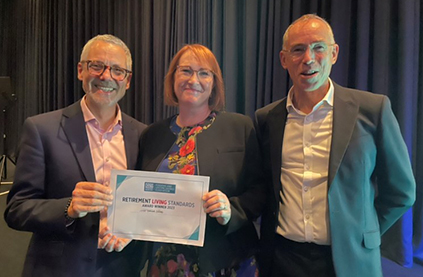Financial coercion - what is it and where can I find help?
Financial coercion, also known as financial abuse, can be difficult to understand and recognise when it is taking place. So what is financial coercion, how can you spot the signs of it, and what can you do if you think it affects you?

Financial coercion, also known as financial abuse, sounds very serious – and it is. But it can also be difficult to understand and recognise when it is taking place. So what is financial coercion, how can you spot the signs of it, and what can you do if you think it affects you?
What is financial coercion?
Financial coercion is when someone else has power over you by controlling your finances. It is considered a form of domestic abuse and is sometimes recognised by the police as coercive or controlling behaviour, which is also a criminal offence.
A common form of financial coercion when someone, such as a partner or other family member, has control of your bank account, preventing or limiting access to your income. It could also involve someone preventing you from working altogether, or from controlling other areas of finance such as your pensions, benefits, trusts or assets. This can leave you feeling trapped and isolated, unable to live your life as you would like but lacking the financial access to take control.
Financial coercion can occur in a variety of ways and can happen at any age, to people of any circumstance and can be perpetrated by partners, family members and other people with close access to you such as carers.
What are the signs of financial coercion?
As with other forms of abuse, financial coercion is not always easy to recognise and there are number of ways this can take place. Examples of financial coercion can include when someone:
- forces you to withdraw money or get credit for them in your name
- requests you give them money for a specific purpose, like to pay for shopping or bills, but then uses it for something else
- prevents you from accessing your bank, loan or credit card accounts
- forces you to add their name to your accounts, or changes your login details so you can no longer access them
- uses your account to pay for bill or expenses that aren’t yours
- controls what you can or can’t spend money on, or asks you to prove what you have been spending your money on
- pressures you to make changes to your will or other financial plans
- cashes in your pension without your permission
- pressures you to change your pension or insurance arrangements, or how your you receive your benefits
Whatever the specifics, if you are being made to feel uncomfortable about the way someone else is acting with your money, this may be financial coercion.
If you want more information on financial coercion, including access to support and advice, click here.
Related news & insights
-

What happens to my pension if I die?
We all know that the main purpose of a pension is to provide us with an income after we have stopped working. But what happens if something unexpected happens? -

We’ve won the Retirement Living Standards Award
We’re delighted to announce that we’ve won the Retirement Living Standards Award for our communications to support and engage Defined Contribution (DC) members with their pension savings. -

We're Pension Provider of the Year!
We’re delighted to have been named Pension Provider of the Year at the Money Age Awards 2023. The award recognised how we support our Defined Contribution members on their pension journey with a combination of online tools, compelling communications and fund choices. -

Introducing our new responsible investment pension funds
We’re introducing new ways to invest in a sustainable future with 6 new self-select pension funds, available for members of TPT’s defined contribution schemes from the 30th of September 2023.